What You Can Learn From Poor Pool Ownership
Having a pool at home is a dream for many homeowners, offering a perfect spot for relaxation and family fun. But with the joy of a backyard oasis comes the significant responsibility of proper maintenance. In this blog post, we'll delve into the common pitfalls in pool ownership and how you can avoid them. You'll learn about the financial burdens of neglect, the environmental consequences of improper care, and the health risks associated with poor pool hygiene. Additionally, we will provide practical advice on routine maintenance, chemical balance, and efficient energy use to ensure your pool remains a safe, enjoyable, and cost-effective asset for years to come. Whether you're a new pool owner or looking to enhance your existing care routine, this guide will equip you with the knowledge to make the most of your backyard haven.
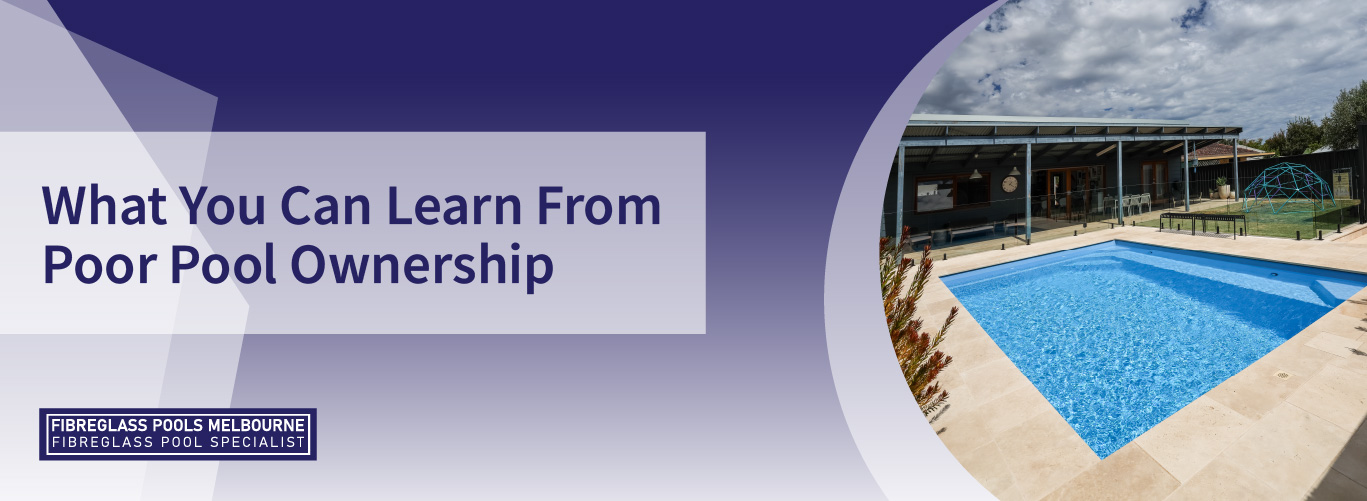
The Common Mistakes of Pool Ownership
Neglecting Regular Maintenance
One of the biggest mistakes pool owners make is neglecting regular upkeep. Pools require constant attention to keep the water clean and safe. Skipping routine tasks like skimming the surface, vacuuming the floor, and brushing the walls can lead to a build-up of debris and algae, making the pool unsightly and unhygienic.
Improper Water Balance
Maintaining the right chemical balance in your pool is crucial. An imbalance can cause the water to become cloudy or irritating to the skin and eyes. Pool owners often struggle with keeping the pH, chlorine, and alkalinity levels in check. Overusing or underusing chemicals can damage the pool’s structure and affect its longevity.
Equipment Neglect
Pool equipment such as filters, pumps, and heaters play a vital role in maintaining water quality. Neglecting these components can lead to inefficient pool operation and costly repairs. Regularly inspecting and servicing the equipment ensures it functions correctly and prolongs its lifespan.
The True Cost of Pool Ownership
Financial Implications of Poor Maintenance
Owning a pool is not just about the initial installation cost. Poor maintenance can lead to hefty repair bills. For instance, ignoring a minor leak can turn into a major structural issue, requiring extensive repairs. Regular upkeep, though seemingly costly, can save significant amounts by preventing major problems.
Increased Utility Bills
A neglected pool often requires more effort to clean and restore, leading to increased utility bills. Efficient maintenance practices, such as using a pool cover to reduce evaporation and heat loss, can help keep these costs in check. Investing in energy-efficient equipment is also a smart way to manage expenses.
Budgeting for Pool Maintenance
Effective budgeting is key to managing pool ownership costs. Allocate funds for regular maintenance, unexpected repairs, and equipment upgrades. Consider setting aside a small amount each month to cover these expenses, ensuring your pool remains in top condition without straining your finances.
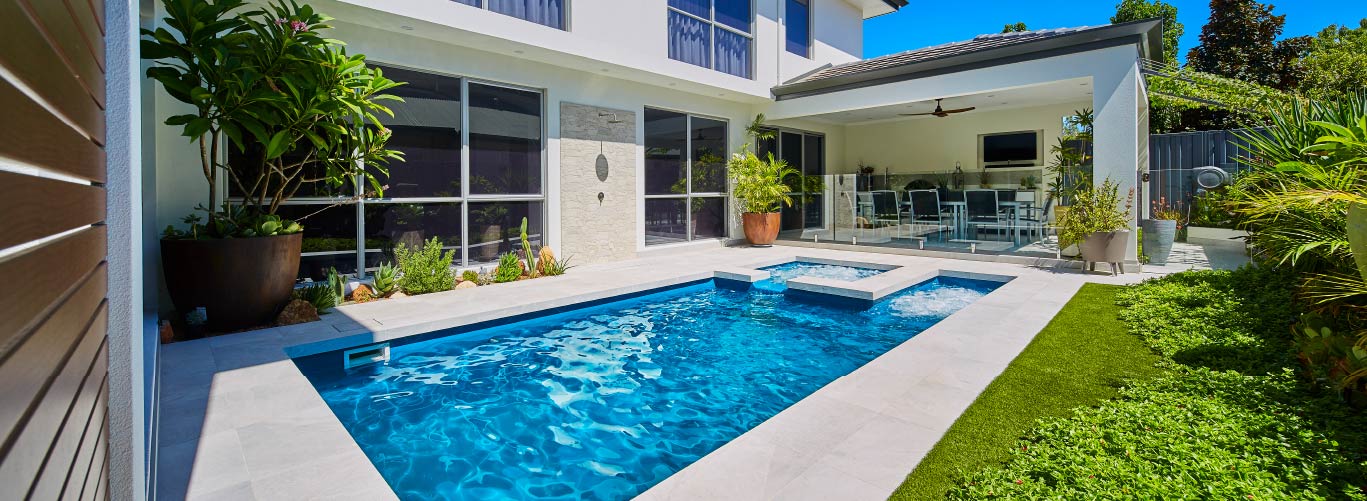
Environmental Impact of Neglected Pools
Water Resource Usage
Poor pool maintenance can have a significant impact on local water resources. Leaks and inefficient water use contribute to wastage, affecting the environment and your water bill. It’s crucial to monitor water levels and address any issues promptly to conserve this valuable resource.
Chemical Runoff
The chemicals used to treat pool water can harm the environment if not managed properly. Runoff from backwashing filters or draining the pool can introduce harmful substances into the ecosystem. Adopting eco-friendly maintenance practices, such as using biodegradable chemicals, can mitigate this impact.
Sustainable Pool Care Practices
Implementing sustainable pool care practices benefits both the environment and your wallet. Use a pool cover to reduce evaporation, invest in energy-efficient equipment, and consider installing a solar heating system. These steps not only minimise your environmental footprint but also reduce operating costs.
The Health and Safety Risks
Waterborne Diseases
Poorly maintained pools can become breeding grounds for harmful bacteria and viruses, leading to waterborne diseases. Regularly testing the water and maintaining proper chemical levels is essential to prevent infections such as ear infections, respiratory issues, and gastrointestinal illnesses.
Physical Hazards
Neglected pools pose physical hazards, particularly for children and pets. Slippery surfaces, broken tiles, and malfunctioning pool equipment can cause accidents and injuries. Ensuring your pool area is well-maintained and secure can prevent such risks and provide a safe environment for all users.
Tips for a Safe Swimming Environment
To maintain a safe swimming environment, follow these essential tips:
- Regularly test and adjust chemical levels.
- Keep the pool area clean and free of debris.
- Ensure all safety equipment, such as pool covers and alarms, are functional.
- Conduct regular inspections of the pool and surrounding area for any potential hazards.
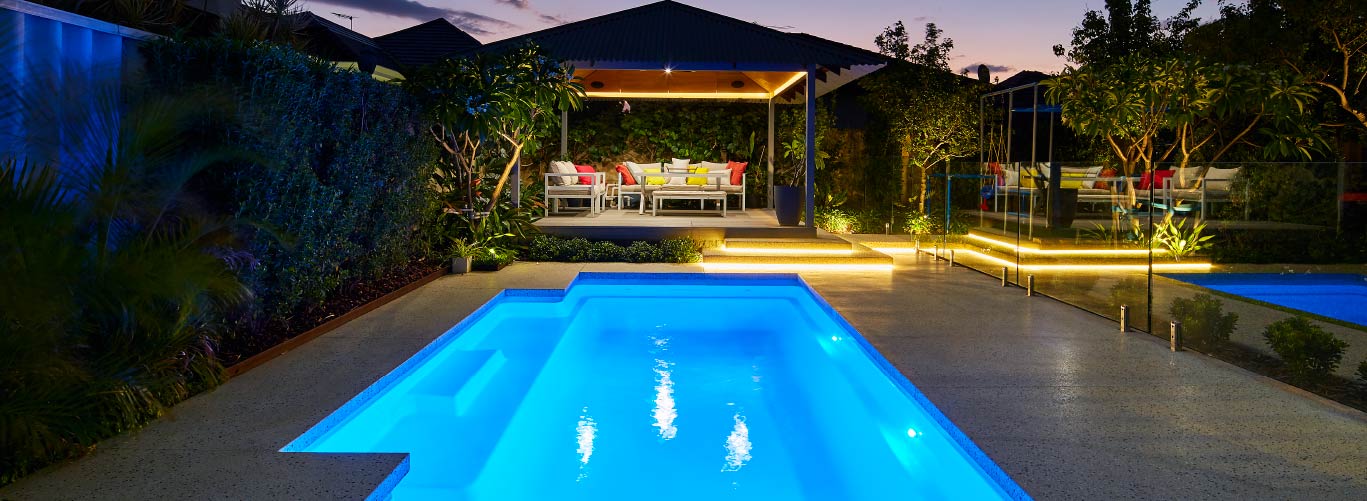
Learning from Mistakes
Importance of Regular Maintenance
Regular maintenance is the key to avoiding common pool ownership pitfalls. Establish a routine that includes skimming, vacuuming, brushing, and testing the water. Consistency is crucial to keeping your pool in pristine condition and preventing issues from escalating.
Water Testing and Chemical Balance
Investing in a reliable water testing kit allows you to monitor and adjust chemical levels accurately. Avoid using guesswork when adding chemicals; follow manufacturer instructions and seek professional advice when needed. Proper chemical balance ensures safe and clear water for swimming.
Professional Services
Sometimes, it’s best to call in professionals. Pool maintenance experts have the knowledge and tools to handle complex issues and offer specialised services such as deep cleaning, equipment repairs, and water treatment. Hiring a professional can save you time and ensure your pool receives the best care.
Conclusion
Owning a pool brings joy and relaxation, offering a perfect spot for family gatherings, exercise, and unwinding after a long day. However, it also demands responsibility and diligent care. By learning from common mistakes, such as neglecting chemical balance or overlooking routine cleaning, and adopting proactive maintenance practices, you can enjoy a clean, safe, and cost-effective pool. Regular tasks like checking the pH levels, skimming debris, and ensuring proper filtration are crucial. Remember, consistent upkeep not only enhances your pool’s longevity but also safeguards your health and the environment, creating a serene and enjoyable oasis in your backyard for years to come.
What You Can Learn From Poor Pool Ownership
Having a pool at home is a dream for many homeowners, offering a perfect spot for relaxation and family fun. But with the joy of a backyard oasis comes the significant responsibility of proper maintenance. In this blog post, we'll delve into the common pitfalls in pool ownership and how you can avoid them. You'll learn about the financial burdens of neglect, the environmental consequences of improper care, and the health risks associated with poor pool hygiene. Additionally, we will provide practical advice on routine maintenance, chemical balance, and efficient energy use to ensure your pool remains a safe, enjoyable, and cost-effective asset for years to come. Whether you're a new pool owner or looking to enhance your existing care routine, this guide will equip you with the knowledge to make the most of your backyard haven.
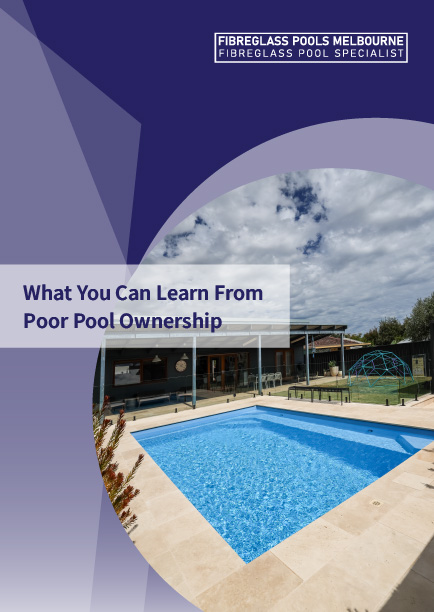
The Common Mistakes of Pool Ownership
Neglecting Regular Maintenance
One of the biggest mistakes pool owners make is neglecting regular upkeep. Pools require constant attention to keep the water clean and safe. Skipping routine tasks like skimming the surface, vacuuming the floor, and brushing the walls can lead to a build-up of debris and algae, making the pool unsightly and unhygienic.
Improper Water Balance
Maintaining the right chemical balance in your pool is crucial. An imbalance can cause the water to become cloudy or irritating to the skin and eyes. Pool owners often struggle with keeping the pH, chlorine, and alkalinity levels in check. Overusing or underusing chemicals can damage the pool’s structure and affect its longevity.
Equipment Neglect
Pool equipment such as filters, pumps, and heaters play a vital role in maintaining water quality. Neglecting these components can lead to inefficient pool operation and costly repairs. Regularly inspecting and servicing the equipment ensures it functions correctly and prolongs its lifespan.
The True Cost of Pool Ownership
Financial Implications of Poor Maintenance
Owning a pool is not just about the initial installation cost. Poor maintenance can lead to hefty repair bills. For instance, ignoring a minor leak can turn into a major structural issue, requiring extensive repairs. Regular upkeep, though seemingly costly, can save significant amounts by preventing major problems.
Increased Utility Bills
A neglected pool often requires more effort to clean and restore, leading to increased utility bills. Efficient maintenance practices, such as using a pool cover to reduce evaporation and heat loss, can help keep these costs in check. Investing in energy-efficient equipment is also a smart way to manage expenses.
Budgeting for Pool Maintenance
Effective budgeting is key to managing pool ownership costs. Allocate funds for regular maintenance, unexpected repairs, and equipment upgrades. Consider setting aside a small amount each month to cover these expenses, ensuring your pool remains in top condition without straining your finances.
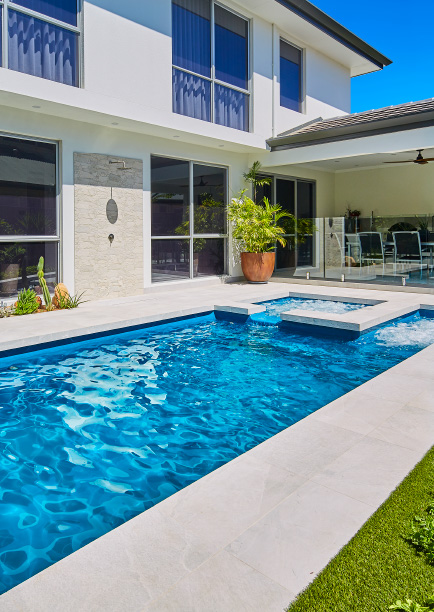
Environmental Impact of Neglected Pools
Water Resource Usage
Poor pool maintenance can have a significant impact on local water resources. Leaks and inefficient water use contribute to wastage, affecting the environment and your water bill. It’s crucial to monitor water levels and address any issues promptly to conserve this valuable resource.
Chemical Runoff
The chemicals used to treat pool water can harm the environment if not managed properly. Runoff from backwashing filters or draining the pool can introduce harmful substances into the ecosystem. Adopting eco-friendly maintenance practices, such as using biodegradable chemicals, can mitigate this impact.
Sustainable Pool Care Practices
Implementing sustainable pool care practices benefits both the environment and your wallet. Use a pool cover to reduce evaporation, invest in energy-efficient equipment, and consider installing a solar heating system. These steps not only minimise your environmental footprint but also reduce operating costs.
The Health and Safety Risks
Waterborne Diseases
Poorly maintained pools can become breeding grounds for harmful bacteria and viruses, leading to waterborne diseases. Regularly testing the water and maintaining proper chemical levels is essential to prevent infections such as ear infections, respiratory issues, and gastrointestinal illnesses.
Physical Hazards
Neglected pools pose physical hazards, particularly for children and pets. Slippery surfaces, broken tiles, and malfunctioning pool equipment can cause accidents and injuries. Ensuring your pool area is well-maintained and secure can prevent such risks and provide a safe environment for all users.
Tips for a Safe Swimming Environment
To maintain a safe swimming environment, follow these essential tips:
- Regularly test and adjust chemical levels.
- Keep the pool area clean and free of debris.
- Ensure all safety equipment, such as pool covers and alarms, are functional.
- Conduct regular inspections of the pool and surrounding area for any potential hazards.

Learning from Mistakes
Importance of Regular Maintenance
Regular maintenance is the key to avoiding common pool ownership pitfalls. Establish a routine that includes skimming, vacuuming, brushing, and testing the water. Consistency is crucial to keeping your pool in pristine condition and preventing issues from escalating.
Water Testing and Chemical Balance
Investing in a reliable water testing kit allows you to monitor and adjust chemical levels accurately. Avoid using guesswork when adding chemicals; follow manufacturer instructions and seek professional advice when needed. Proper chemical balance ensures safe and clear water for swimming.
Professional Services
Sometimes, it’s best to call in professionals. Pool maintenance experts have the knowledge and tools to handle complex issues and offer specialised services such as deep cleaning, equipment repairs, and water treatment. Hiring a professional can save you time and ensure your pool receives the best care.
Conclusion
Owning a pool brings joy and relaxation, offering a perfect spot for family gatherings, exercise, and unwinding after a long day. However, it also demands responsibility and diligent care. By learning from common mistakes, such as neglecting chemical balance or overlooking routine cleaning, and adopting proactive maintenance practices, you can enjoy a clean, safe, and cost-effective pool. Regular tasks like checking the pH levels, skimming debris, and ensuring proper filtration are crucial. Remember, consistent upkeep not only enhances your pool’s longevity but also safeguards your health and the environment, creating a serene and enjoyable oasis in your backyard for years to come.


